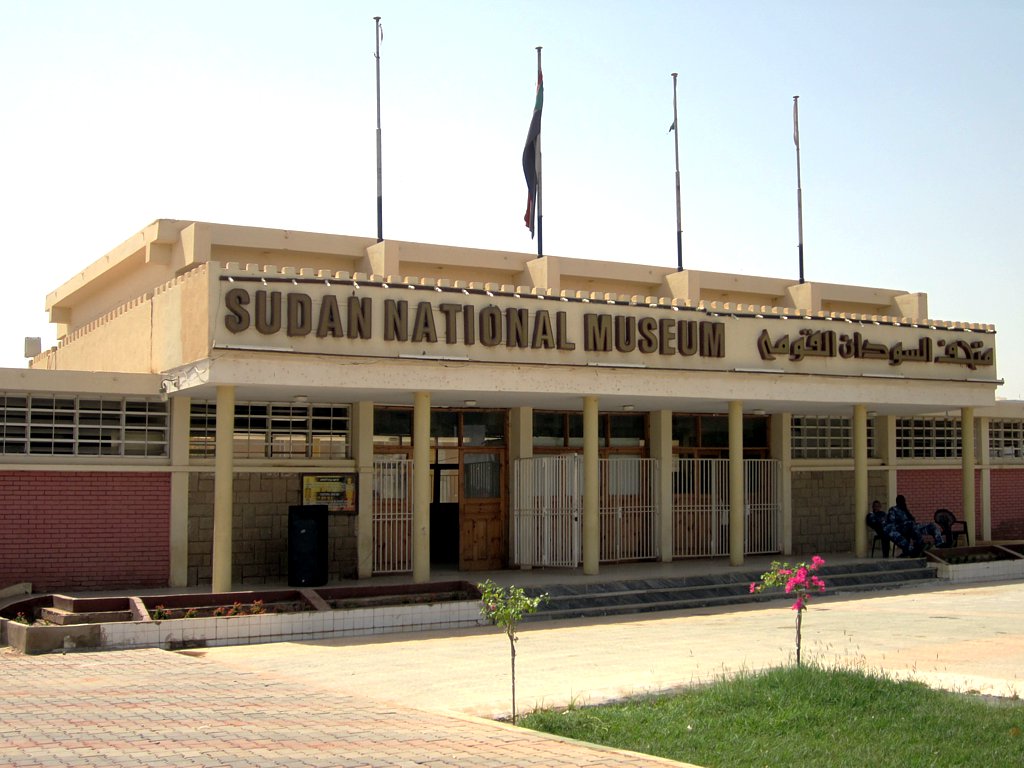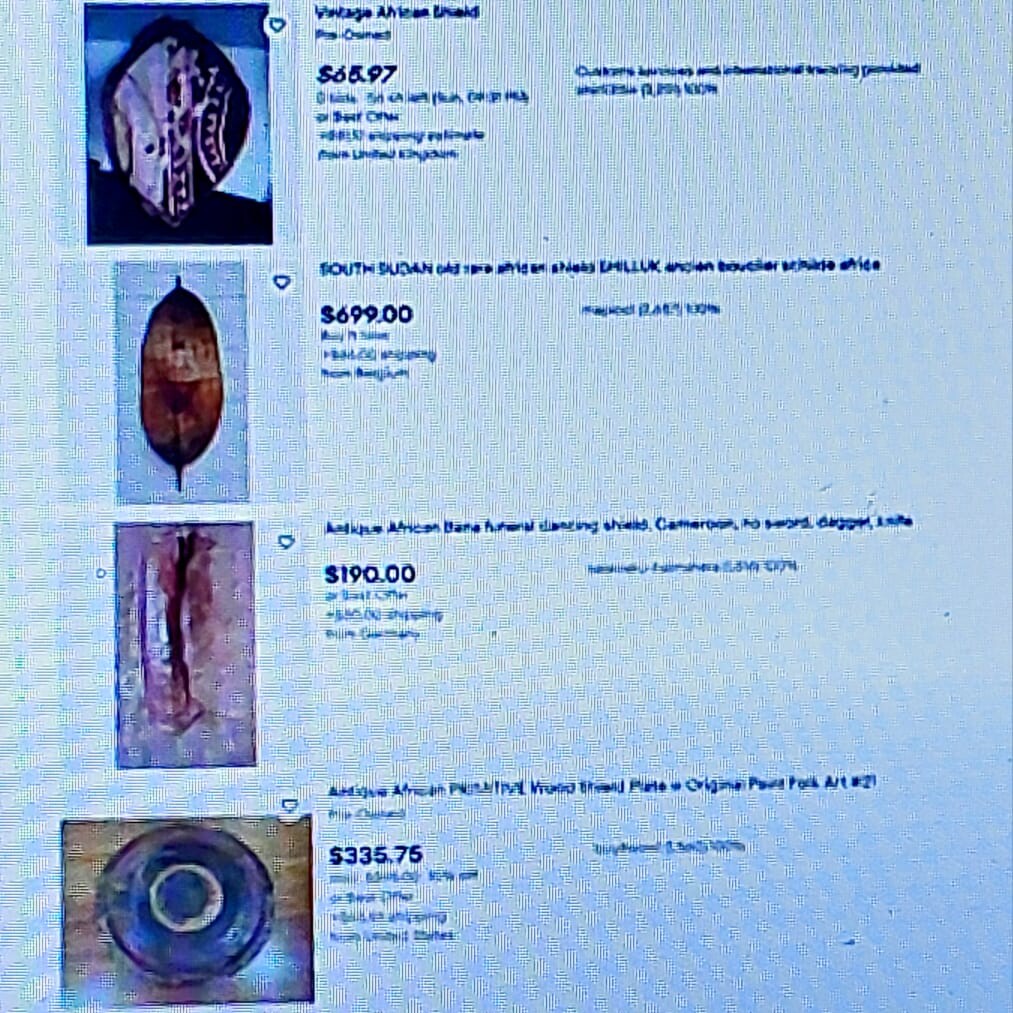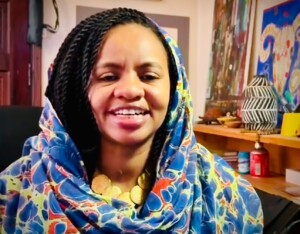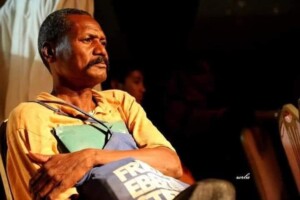Sudan’s lost treasures: war fuels artefact trafficking

Sudan National Museum (file photo: Wikipedia)
Sudan Media Forum: Joint Newsroom
Prepared by: Sudan Tribune
Sudanese officials and government sources have revealed ongoing efforts to track and recover stolen Sudanese artefacts from several museums, particularly those that have passed through South Sudan or across its borders. The extent and value of the stolen artefacts remain unknown due to the difficulty officials face in accessing the National Museum in Khartoum and other museums across the country, all of which are in conflict zones between the Sudanese Armed Forces (SAF) and the Rapid Support Forces (RSF).
Sudan has lost a significant part of its history and cultural heritage following the looting of a main artefact storage facility at the National Museum in Khartoum. The full extent of the stolen artefacts is yet to be confirmed, as officials have been unable to access the site.
Ikhlas Abdellatif, director of museums at the Sudanese National Corporation for Antiquities and Head of the Sudanese Antiquities Recovery Committee, confirmed in an interview with Sudan Tribune that the National Museum in Sudan was subjected to extensive plundering by the RSF.
Inaugurated in 1971, the National Museum, situated in the capital, Khartoum, overlooking the Blue Nile, houses a collection of artefacts that chronicle all periods of Sudanese civilisation, from the Stone Age to the Islamic period, including Nubian and Christian artefacts. The National Museum’s storage is considered the main repository for all of Sudan’s antiquities.
Abdellatif confirmed that the looted artefacts from the museum were transported by large trucks through Omdurman to western Sudan and from there to the borders, particularly to South Sudan.
Art dealers
This comes as private sources in Juba, the South Sudanese capital, confirmed to Sudan Tribune that a group of art dealers from European and African countries are purchasing these artefacts and transporting them out of the country.
A Sudanese government official, speaking to Sudan Tribune, accused authorities in Juba of neglecting communication with Sudan regarding its stolen artefacts and implicated South Sudanese officials in smuggling stolen Sudanese artefacts abroad after selling them in Juba.
The official explained that Sudan had formally contacted Juba to track these artefacts, prevent their transfer, sale, and removal, and confiscate them, but received no response.
He stated that the authorities in Juba did not pay attention to the matter, asserting that some artefacts were sold with the facilitation of officials in the Juba government – however, he did not provide evidence to support this claim during his interview.
Meanwhile, Ikhlas Abdellatif confirmed that other museums have also been plundered and destroyed, stating that the Nyala Museum in South Darfur was looted of all its possessions and holdings, including furniture and display cabinets.
The Khalifa Abdallah El Ta’aishi Museum in Omdurman was also subjected to theft and parts of the building were destroyed, according to Abdellatif.
Interpol pursuit
The government official confirmed that Sudanese authorities, through security and intelligence agencies, have identified Sudanese artefacts displayed in Juba, particularly a rare collection of treasures (artefacts) in a hotel.
He mentioned the display of a collection of pieces from the Stone Age along with other pieces related to the Nubian civilisation and revealed that follow-up operations are currently underway with Interpol to track these and other pieces in coordination with UNESCO. All artefacts are considered stolen, despite the lack of confirmation.
The official stated: “Monitoring and tracking all the artefacts in the museum enhances the chances of protecting them. There is no certainty that they are all stolen, but to ensure their protection, the authorities preferred to report the theft of the entire contents of the museum.”
He mentioned that the currently tracked artefacts include sculptures, statues, weapons, and ancient vessels of very high historical and material value.

Thousands of Sudanese artefacts were stolen from the National Museum in Khartoum during the war, and some of them were offered for sale on eBay for $200. These were three statues on a single base, depicting a man, a woman, and a child. However, the website later removed those listings.
Last November, the Criminal Investigation Department in River Nile state arrested a group of ten foreigners who were on their way to smuggle rare artefacts stolen from the National Museum of Sudan. The detectives announced at the time the seizure of other artefacts stolen from the Nyala Museum in South Darfur. The artefacts were hidden for a period in a factory in Atbara, and some of them were hidden in a house.
The seized artefacts included two rare antique statues decorated with ancient inscriptions, seven historical copper jugs, in addition to an ancient dagger and pestle dating back to ancient times.
On January 15, the historical landmarks in the museum and palace of Sultan Ali Dinar in El Fasher were bombed by the RSF, which led to the burning of large parts of the palace and the destruction of its contents and furniture.
Sources in El Fasher, the capital of North Darfur, told Sudan Tribune that the museum suffered severe damage, as the fire consumed the Sultan’s personal belongings, in addition to extensive damage to the building.
UNESCO, in a September statement, called on the public and those working in the cultural goods trade in the region and around the world to refrain from possessing cultural property from Sudan or participating in its import, export, or transfer.
It confirmed that many other major collections that bear witness to Sudan’s rich history have been reported stolen from the Khalifa House Museum and the Nyala Museum.
However, archaeological experts have expressed concerns about the destruction of large statues in the National Museum and other artefacts due to military clashes near them. Experts also fear the tampering and destruction of monuments and large statues due to attempts to move, transport, or cut them for sale. UNESCO confirms that 10 museums and cultural centres have been subjected to looting, theft, and vandalism in Sudan since the outbreak of the war.
This report is published simultaneously on the platforms of media institutions, organisations, and press members of the Sudan Media Forum.
#SilenceKills #NoTimeToWasteForSudan #StandWithSudan #SudanMediaForum












 and then
and then